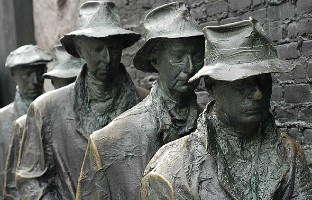A time to spend

"In these tough times, Americans are tightening their belts—and their government needs to do the same." Versions of this line have enjoyed bipartisan popularity lately. President Obama, House Speaker John Boehner and other leaders from both parties share the talking point. It's a good applause line: it's pithy, full of populist empathy, easy to understand. It's also exactly wrong.
While partisan gridlock over raising the debt ceiling has taken the nation to the brink of disaster, the differences between Democrats and Republicans on the issue are largely political, not substantive. The consensus view is that the budget deficit is the country's most pressing economic problem and that cuts to government spending are the primary solution. The policy questions on the table boil down to just this: how drastically should government spending be cut—and should the deficit also be reduced further by a modest package of tax increases?
Meanwhile, almost a tenth of Americans are unemployed. Cuts to essential services will hurt these people while they're down, and deficit reduction of whatever kind will do little to get them working and the economy rolling again. That turnaround requires more of the things that antideficit zeal has pushed off the table: federal support for states, investments in bridges and roads and train tracks, targeted relief for lower-income taxpayers.




